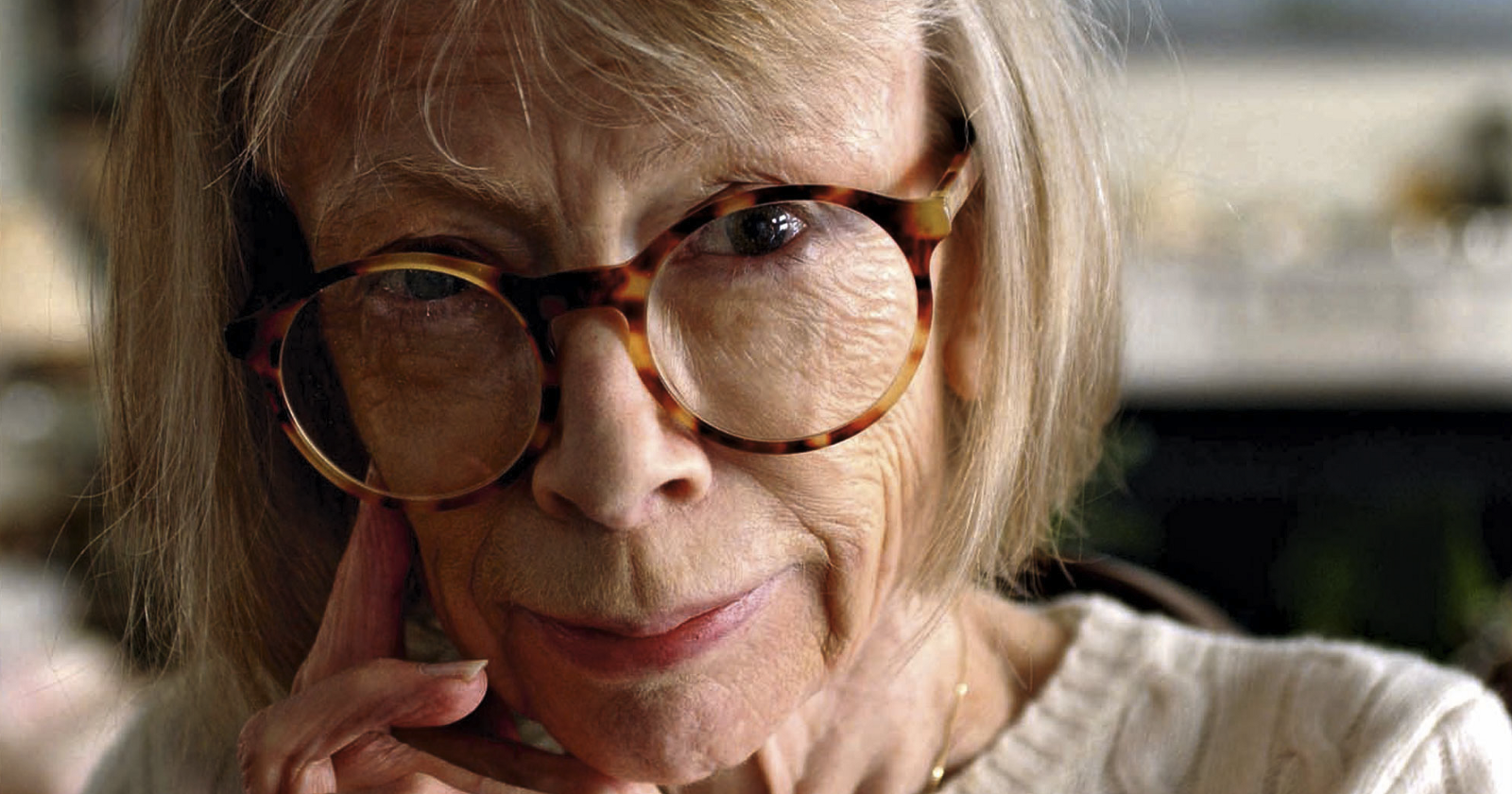Celebrity Book Review
CELEBRITY BOOK REVIEW: Joan Didion on “Astonish Me” by Maggie Shipstead

Editor’s note: Any resemblances to actual celebrities — alive or dead — are miraculously coincidental. Celebrity voices channeled by Courtney Maum.

This is a keepsake about motion and longing. This is the imminent agony of a nail underfoot. This is a story about dreams being realized by the dreamer’s runner up. This is the leaden taste of disappointment, the muscle memory ache of not good enough.
For over a decade, Joan Joyce, the antihero of Maggie Shipstead’s Astonish Me, dreamt of being a principal dancer in the ballet until a pregnancy — unplanned, perhaps, or fateful — presented her with a respectful way to deter her professional career before the critics could point out what Joan herself had always known: that she was a good dancer who would never be great.
Pale flesh masking tendons, pink silk against bone; the professional dance world has a way of beautifying the gruesome with rosin and soft lights. In her early years as a dancer, Joan roomed with Elaine, a ballerina who was a relentless, gifted “have” to Joan’s “have-not.” Despite her roommate’s innate talent, the two remain friends, with schemes and secrets settling between their lives like river silt. It is Elaine, and Elaine only, who knows the impetus behind Joan’s premature bow, as well as the vengeful hopes Joan harbors for the embryo inside her.
Astonish Me is the story of a disappointed woman who trades the monolithic energy of Manhattan for the planned communities of southern California.
From the outside, Joan chooses a safe life: she marries a steadfast man named Jacob who was besot with her as a young boy and is none the less absorbed by her now that he is a man. She has a pudgy neighbor whom she torments by doing battement exercises while her baby plays up-sided on the grass. Her neighbor also has a child, a girl for Joan’s boy. Joan is offered opportunities to reconfigure her present, but remains fixated on the ill-conceived choreography of her past: when she was in her twenties, she helped the world’s most famous Russian dancer defect. His name was Arslan Ruskov. There were years of shared bedsheets. Silk against bone.
But even the safe-houses cannot escape the wind.
To have lived in New York in your twenties is to never be fully content with the world again.
When I was younger, I stopped at street corners, endlessly seduced by the synchronicity of green lights. If I felt like eating a piece of fruit, I would stop at a fruit stand and purchase a piece of fruit, giving to a single peach skin the attention usually delegated to a lover. Young enough to eat a peach on a New York street corner, out of season, with only a paper sheet of napkin to wipe the pulp from my lips. To want so much, and to have had it, had it even for a moment in your thrumming grasp — I am here to tell you that you will never want that way again. A wish for sweet fruit now is but an echo from a dream. Ghost yells of sirens. Green lights turning red.
Once Joan and Jacob move to suburban California, Joan, too, moves from the future perfect to the past. The edifices she has built to hide her secrets start to crumble, exposing those around her to the upturned cigarette trays, the fingerprinted glasses, the tired refuse of a party stayed at too long.
In California, despite the husband, her blameless figure, despite her bright son, Joan Joyce greets each morning with sinewy dread.
All is not what it was, or what it was meant to be, which, in the closed mind of the nostalgic, amounts to the same thing.
Steps are missed. Lights are aimed to spotlight someone other than the star. In these two hundred and seventy-two pages of uncompromising prose, Shipstead reveals what occurs when a life is lived disingenuously by its keeper so that it might be lived to perfection by someone else. Cold of heart and skin, in Joan Joyce Shipstead has created a malevolent forget-me-not who keeps her aspirations on the lowest possible simmer until they choke us with the odor of good wine gone off.








